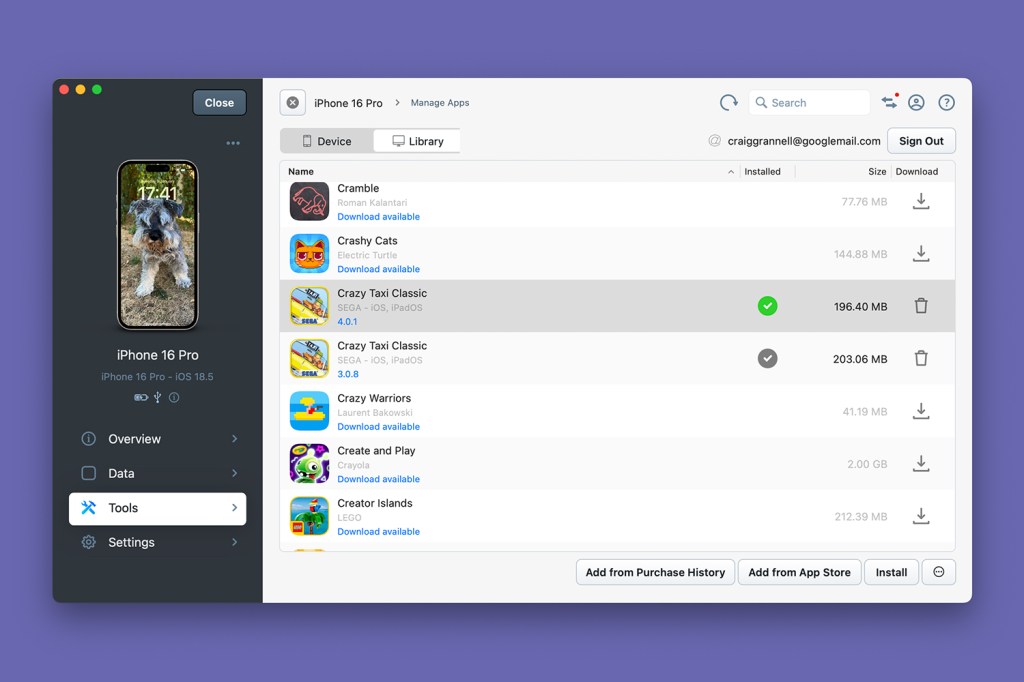[ad_1]
Sega Forever was a brilliant idea in theory. Tap into Sega’s rich back catalogue. Lovingly repackage each title for smartphones. Let fans enjoy the classics with cloud saves, leaderboards, and support for virtual and physical controls. And let everyone play for free – or bin adverts with a small one-off payment.
In reality? It fizzled. Most of the collection comprised a bunch of Mega Drive/Genesis titles in a creaky emulator. Beyond that, Virtua Tennis showed up as the half-hearted mobile version rather than the Dreamcast great. However, the odd title shone, such as a cracking mobile-optimised Crazy Taxi I still play, and a Super Monkey Ball remake that felt right at home on mobile devices with gyroscopes and accelerometers.
Sega is now axing even these highlights. Open a remaining Sega Forever game and you’ll see a notice that support is ending. Hardly a shock, since the most recent Sega Forever release arrived in 2019. But it’s still a gut punch that the range would have been better named Sega For About Eight Years.
My take is that while gamers obsess over the new, the industry’s rich history deserves equal attention. It’s worth preserving. Yet unlike with music, film and literature, it’s hard to legally access more than a small selection of titles. And those are resold time and time again. Sega Forever could have been different – a window into the deeper cuts of Sega’s history. But it never quite got there.
There are probably solid business reasons for that. But it also again highlights the ephemeral nature of digital games. Buy something on an app store and you can download it on multiple devices – until the day you can’t. There’s no guarantee of permanence, which in Sega’s case stands in stark contrast to the cartridges and discs these games originally appeared on.

Save state
Fortunately, there are ways to safeguard mobile games. Connect an iPhone or iPad to a Mac or PC, and use iMazing. Go to Tools > ‘Manage Apps’, click Library, and download games as IPA files to later sideload on to compatible devices using the same Apple ID. (That’s how I resurrected old App Store games on a first-gen iPad Air.)
Android’s easier. Install Cx File Explorer, tap Local and Apps, pick a game and tap Backup. Squirt the APK+ file to another device using something like Quick Share (again, use Cx File Explorer to install it). And whether you favour Apple or Android kit, stash copies of your exports in the cloud or on a backup drive, so you don’t lose them if a device dies.
So it’s good news that Sega Forever (and other) games can be saved, but preservation shouldn’t mean jumping through hoops. The games industry must be better about safeguarding and making accessible its own history. ‘Netflix of retro games’ Antstream Arcade makes a valiant effort regarding accessibility, but still only has 1300 titles and lacks true ownership. Permanence for classic digital games remains vanishingly rare. And when a service winks out of existence, gaps in gaming history reappear with no guarantee they’ll ever be filled again.
Of course, there is one (legally grey) way to access old games that the industry hates and yet actually works: emulation. Maybe it’s time to stop fighting it. Publishers could repackage old games however they like and simultaneously give us access and personal-use rights to old ROMs and disc images, to use as we please.
Then a name like ‘Sega Forever’ would mean something, and the classic games we care about really would be able to legally live on in our lives, forever.
[ad_2]
Source link

